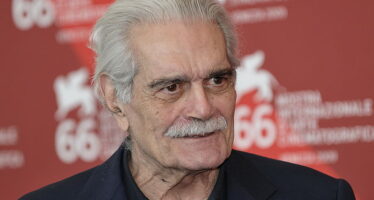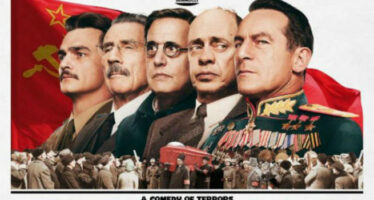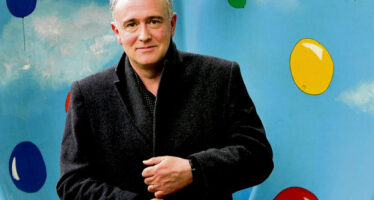Founding father of African fiction whose novels chronicled Nigeria’s troubled history
![]()
Chinua Achebe obituary
Lyn Innes
The Guardian
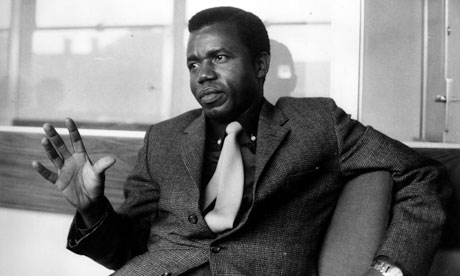
Chinua Achebe in 1967. He championed the cause of Biafra’s independence and was determined that the Igbo presence and perspectives should continue within the Nigerian nation. Photograph: Michael Neal
Chinua Achebe, who has died aged 82, was Africa’s best-known novelist and the founding father of African fiction. The publication of his first novel, Things Fall Apart, in 1958 not only contested European narratives about Africans but also challenged traditional assumptions about the form and function of the novel. His creation of a hybrid that combined oral and literary modes, and his refashioning of the English language to convey Igbo voices and concepts, established a model and an inspiration for other novelists throughout the African continent.
The five novels and the short stories he published between 1958 and 1987 provide a chronicle of Nigeria’s troubled history since the beginning of British colonial rule. They also create a host of vivid characters who seek in varying ways to take control of their history. As founding editor of the influential Heinemann African writers series, he oversaw the publication of more than 100 texts that made good writing by Africans available worldwide in affordable editions.
Born in the traditional Igbo village of Ogidi, eastern Nigeria, some 40 years after missionaries first arrived in the region, Achebe was christened Albert Chinualumogu by his Christian convert parents. Later, in an autobiographical essay entitled Named for Victoria, Queen of England, he told how, like Queen Victoria, he “lost his Albert”.
Growing up as a Christian allowed him to observe his world more clearly, he wrote. The slight distance from each culture became “not a separation but a bringing together like the necessary backward step which a judicious viewer might take in order to see a canvas steadily and fully”.
At the local missionary school, however, the children were forbidden to speak Igbo, and were encouraged to disown all traditions that might be associated with a “pagan” way of life. Nevertheless, Achebe absorbed the folk tales told to him by his mother and older sister, stories he described as having “the immemorial quality of the sky, and the forests and the rivers”.
When he was 14, Achebe was sent to the prestigious colonial Government college at Umuahia, where his schoolmates included the poet Christopher Okigbo, his close friend. In 1948, he won a scholarship to study medicine at what became the University of Ibadan. After his first year, however, he realised it was writing that most appealed to him, and he switched to a degree in English literature, religious studies and history.
Although the English curriculum closely followed Britain’s, teachers also introduced works they considered relevant to their Nigerian students, such as Joyce Cary‘s African novels and Joseph Conrad’s Heart of Darkness. But such works were at odds with the changing mentality brought about by the anti-colonial movements in west Africa following the second world war.
Achebe was among several future literary stars, including Wole Soyinka, who, between 1948 and 1952, contributed stories and essays to student magazines with a nationalist orientation. Even in these early pieces, one can discern Achebe’s characteristic qualities: a coolly amused view of the educated elite, a carefully balanced structure of contrasts, a pleasure in mimicking or parodying various modes of discourse, an interest in rural Nigeria and the uneasy interaction between western and Igbo cultures, and an insistence on what he saw as the crucial Igbo value of tolerance. It is in one of these stories that a favourite proverb of his makes its first appearance: “Let the hawk perch and let the eagle perch.”
By the time he graduated in 1952, Achebe had decided to be a writer telling the story of Africans and the colonial encounter from an African point of view. One of his motivations was Cary’s Nigeria-set novel Mister Johnson, which, though much praised by English critics, seemed to him “a most superficial picture of Nigeria and the Nigerian character”. He thought: “If this was famous, then someone ought to try and look at this from the inside.”
What had originally been planned as one long novel, beginning with the colonisation of eastern Nigeria and ending just before independence, turned into two shorter novels, Things Fall Apart (set in the late 19th century) and No Longer at Ease (set in the decade before Nigeria gained its independence). While the second novel takes up and retells the plot of Mister Johnson – the story of a young Nigerian clerk who takes a bribe and is tried and sentenced by the colonial administration – the first seeks, with consummate success, to evoke the culture and society Mister Johnson and his ancestors might have come from.
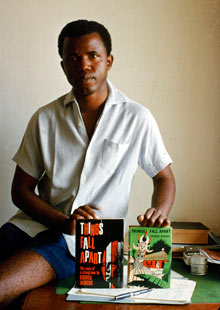 Chinua Achebe with two editions of his first novel, Things Fall Apart. Photograph: Eliot Elisofon/Time Life Pictures/Getty
Chinua Achebe with two editions of his first novel, Things Fall Apart. Photograph: Eliot Elisofon/Time Life Pictures/Getty
Things Fall Apart recreates an oral culture and a consciousness imbued with an agrarian way of life, and demonstrates, as Achebe put it, “that African peoples did not hear of civilisation for the first time from Europeans”. At the same time, he sought to avoid depicting precolonial Africa as a pastoral idyll, rejecting the nostalgic evocations of Léopold Senghor and the francophone négritude school of writing.
The protagonist, Okonkwo, emerges as a heroic but rigid character, whose fear of appearing weak leads him to act harshly towards his wives and children and to participate in the sacrifice of a young hostage from another village. Its characterisation and enclosed rural world have been compared to The Mayor of Casterbridge by Thomas Hardy, a novelist Achebe admired. Things Fall Apart has sold millions of copies and has been translated into more than 50 languages.
No Longer at Ease, set in 1950s Nigeria and published in 1960, takes up the story of Okonkwo’s grandson, an idealistic young Nigerian civil servant who returns home after studying in England, finds his salary inadequate for his expected lifestyle, and takes a bribe.
By this time, Achebe himself had been on the first of many trips abroad. As head of the talks department at the Nigerian Broadcasting Service (NBS), he was sent in 1956 on a short training course with the BBC in London. Back in Nigeria, he edited and produced discussion programmes and short stories for the NBS in Enugu, eastern Nigeria, and learned much about how good dialogue works. There, he met Christie Chinwe Okoli, a beautiful and brilliant student from Ibadan University. They married in 1961 and had four children.
While preparing a feature on the response of Nigerians to early colonial rule, Achebe investigated the story of an Igbo priest imprisoned for refusing to collaborate with the British. Fascinated by the tale and the priest’s proud character, he made it the focus of his third novel, Arrow of God (1964). Some critics regard this as Achebe’s greatest achievement, with its complex structure and characterisation, and its interrogation of the interstices between subjective desire and external forces in the making of history.
The concerns with responsible leadership that inform Arrow of God are taken up more explicitly in his satirical fourth novel, A Man of the People (1966). It exposes the corruption and irresponsibility of politicians and their constituents, ending with a military coup – as indeed happened in post-independence Nigeria in 1966, a coup that led to the attempted secession of Biafra and a civil war in which more than a million people died.
When the massacre of Igbos began in the north following the coup, Achebe was working for the Nigerian Broadcasting Commission in Lagos. Warned that he might be in danger (a cousin was one of the military leaders assassinated), Achebe took his family to eastern Nigeria. He became a strong advocate of Biafra’s independence, travelling the world to seek support. In his view, Biafra was not only a territory that could ensure the survival of Igbo peoples, but also an ideal. Speaking in 1968, he declared: “Biafra stands for true independence in Africa, for an end to the 400 years of shame and humiliation which we have suffered in our association with Europe … I believe our cause is right and just. And this is what literature should be about today – right and just causes.”
Although the war ended in defeat for the Biafran cause, Achebe was determined the Igbo presence and perspectives should continue within the Nigerian nation. His collection of poems Beware Soul Brother (1971) and the volume of short stories Girls at War and Other Stories (1972) drew on the experiences of the war. He became a senior research fellow at the University of Nigeria, Nsukka, and in 1971 he and a group of Nigerian academics founded Okike, an important journal for African creative writing and critical debate. He also wrote several books for children.
In 1972, Achebe accepted a visiting professorship at the University of Massachusetts Amherst, where he taught African literature and continued to edit Okike. It was there that I first met him and worked as an assistant editor for Okike. I also attended and occasionally co-taught his course on African writing, and admired his patience with students who sometimes made all too evident their ignorance and prejudice with regard to African culture.
That tolerance, and indeed friendship, extended to colleagues such as a professor who jokingly promised to provide native girls for all the members of his department when he became head. I looked across at Achebe and saw him raise an eyebrow. Despite his passionate condemnation of racism and imperial arrogance, it is Achebe’s gentle irony, ready laughter and his delight in anecdotes about our children’s antics that I most vividly remember.
He did not retreat from controversy. In essays, lectures and interviews, he declared the need for committed writing in the African context, and derided writers and critics whose attitudes to Africans he found condescending or racist. At the University of Massachusetts, he denounced Heart of Darkness in a lecture that caused many in the audience to walk out in protest, and still arouses debate.
Achebe returned to Nigeria in 1976 to be professor of literature at the University of Nigeria, where he continued to teach, became chairman of the Association of Nigerian Writers and edited Uwa ndi Igbo, the Journal of Igbo Life and Culture. He was also elected deputy national president of the People’s Redemption party and published a political pamphlet, The Trouble With Nigeria, in 1983.
Achebe not only created a new kind of novel, but was also unwilling to repeat the same formula. Each novel set up a dialogue with its predecessor, technically and formally as well as with regard to character and social milieu. This process culminated in his fifth novel, Anthills of the Savannah (1987), which commented on the forms and themes of his own works and those of other African writers. The novel insists there is no one story of the nation, but a multiplicity of narratives, weaving continuities between past and present, Igbo and English cultural forms and traditions. The philosophy, structure and aesthetic of Anthills of the Savannah, and indeed of all of Achebe’s fiction, is summarised in the final sentences of his essay The Truth of Fiction: “Imaginative literature … does not enslave; it liberates the mind of man. Its truth is not like the canons of orthodoxy or the irrationality of prejudice and superstition. It begins as an adventure in self-discovery and ends in wisdom and humane conscience.”
In 1990, a car accident left Achebe paralysed. Bard College, New York, offered him and Christie the possibility of teaching there and provided the facilities he needed. Now using a wheelchair, he continued to travel and lecture in the US and occasionally abroad. His talks at Harvard in 1998 were published under the title Home and Exile.
His more recent lectures and autobiographical essays were published in The Education of a British-Protected Child (2009). He moved to Providence, Rhode Island, in 2009 after being appointed professor of Africana studies at Brown University. In 2012 he published There Was a Country: A Personal History of Biafra, which reiterated his belief in the ideals that had inspired the nationalism of his younger days. His account of the events that led to the civil war, its conduct and aftermath have stirred strong reactions from supporters as well as opponents of the Biafran cause.
Achebe received numerous awards and more than 30 honorary doctorates, but among the tributes he may have valued most was Nelson Mandela’s. “There was a writer named Chinua Achebe,” Mandela wrote, “in whose company the prison walls fell down.”
He is survived by Christie, their daughters, Chinelo and Nwando, and their sons, Ikechukwu and Chidi.
• Chinua Achebe, writer, born 16 November 1930; died 21 March 2013
Related Articles
Great Books Behind Omar Sharif ’s Films
![]()
Omar Sharif is perhaps best-known for his role in Dr. Zhivago, based on the classic novel by Boris Pasternak. But many of his films were based on acclaimed books
‘The Death of Stalin’ Film Review
![]()
Rotten Tomatoes gives director Armando Iannucci’s recently released comedy The Death of Stalin a 96 percent viewer rating
Los hijos de Beckett y Joyce en La Habana
![]()
La literatura irlandesa estará presente en la Feria Internacional de Libro de La Habana 2017, mediante la concurrencia de escritores

